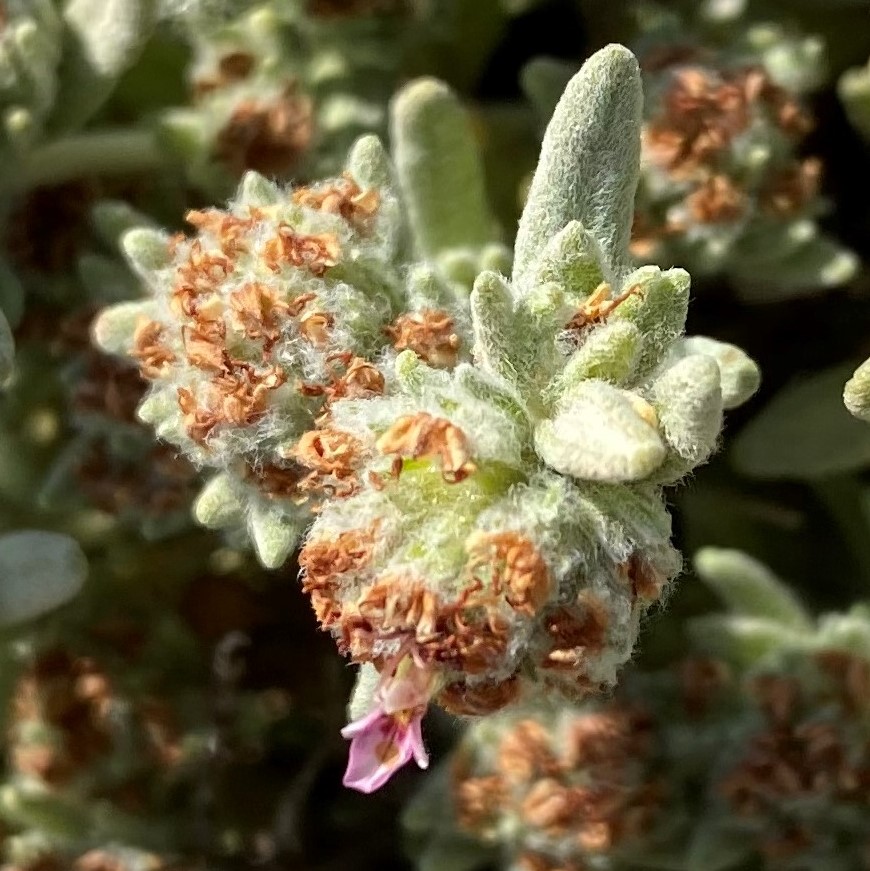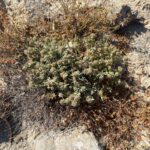Μητέρα, Τεύκριο το μικροποδιοειδές
Etymology of Teucrium micropodioides: The Ancient Greek name "Teucrium" [Τεύκριον] was used by Dioscorides for several species in this genus and is assumed to refer to King Teucer [Τεῦκρος] of Troy who used the plant in his medicine; assumed, because there was also another famous Teucer, son of King Telamon of the Island of Salamis, today in Greece. Teucer was a great archer who fought alongside his half-brother, Ajax, in the Trojan War and is the legendary founder of the ancient city of Salamis in Cyprus. Its epithet, "micropodioides" derives from the Greek "μικροποδιοειδές", meaning "small-footed".
At least 10 kinds of Teucrium plants (species and subspecies) have been discovered in the Cypriot habitat so far, of which three of them appear exclusively in occupied Cyprus north.
Teucrium micropodioides is a rather common endemic species that grows in dry rocky areas, derelict land, clearings in forests and, less commonly, on sandy seashores from sea level to 850 metres. Teucrium micropodioides is a mildly aromatic white felted perennial shrublet with a compact domed shape. The leaves are small and cottony. The flowers, which appear between April and July (April and May for the coastal areas), are purplish in colour forming dense, stalk-less heads.





